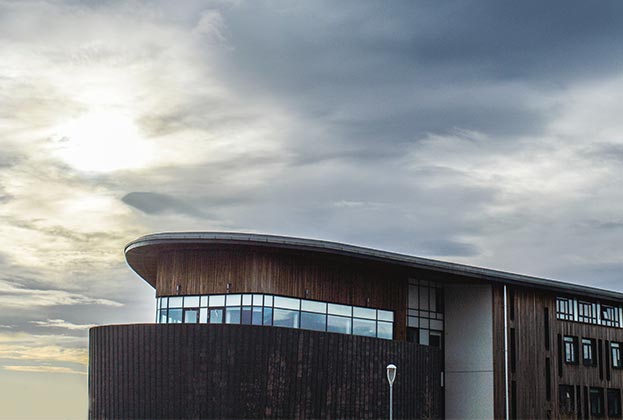Some easy wins may not be a sustainable as they first seem
One would think that with the world’s students very much at the forefront of demanding better environmental behaviour, they would also be demonstrating it. However, in the same way that the circle has not been squared between consuming fast fashion and its environmental impacts, many university estates are still struggling with wide-open windows in halls of residence while the heating is also on full blast! This slightly glib remark does, however, hint at some unique challenges for higher education institutions that wish to reduce their carbon impact.
As we mentioned earlier in this report, some of the things that universities do are, by nature, very large consumers of energy. Laboratories, engineering facilities and the computing power required to create new models all push up energy usage and emissions. However, these are easily measurable and mitigated or offset.
The UN’s fourth Sustainable Development Goal is Quality Education
Savills Research
More challenging to measure and value are the positive impacts of research and education. “Quality Education” is the fourth of the UN’s Sustainable Development Goals (SDG), and universities positive impact on the world through teaching and researching is probably far in excess of the campus’ energy emissions. There undeniably needs to be more outreach from the academic bubble of the journal to the wider world, but therein lies another environmental sustainability challenge for universities.
Discouraging academics from flying around the world to attend or address conferences would have an immediately measurable effect on CO2 emissions, and thus has received a lot of attention. Sion Pickering, the network manager for the Roundtable of Sustainable Academic travel, based at the University of Edinburgh was recently quoted as saying that business travel was “one of the biggest carbon emitters that we have as a university.” The University of Exeter has estimated that travel accounts for 21% of its carbon footprint (and it is worth noting that many organisations do not include travel when calculating their total carbon footprint).
However, international collaboration (particularly in the field of environmental sustainability) generally leads to more impactful research and a higher likelihood of the results being taken seriously, so a blanket ban on business travel might be a short-term win but a long-term loss. Suggestions that virtual events and video conferencing are better for the planet than flying might sound obvious, but they ignore the carbon emissions related to data centres and traffic, with one recent survey suggesting that the typical office worker’s annual email traffic alone emits as much CO2 as one flight from London to Brussels.
Another issue that is comparatively unique to the higher education sector is that of international students and their travel. Virtually no university includes the carbon emissions from students travelling to and from their home countries in the institution’s overall calculation of its carbon footprint. A study in the Journal of Cleaner Production by Robin Shields from the University of Bath indicated that the greenhouse gas emissions associated with international student travel were between 14.01 and 38.54 megatons in 2014, a sharp rise from the 7.24–18.96 range that was present in 1999. The study pointed out that the lower estimate is comparable to the national annual total emissions of Jamaica.
Yet a simple ban on non-domestic students has more than just financial complications for universities. What would be the impact be on international co-operation and knowledge transfer? How damaging would this be in terms of UN SDG 4?
Universities in particular need to think about their own sustainability goals as a whole rather than parts such as energy, behaviour, estates. Furthermore, there are clearly some areas where a knee-jerk cut or change may have longer-term negative implications for the institution itself or the wider debate.
The challenge ahead is as much about measuring and comparing costs and benefits as it is about an immediate reduction in CO2 emissions or being seen to do something.
Read the articles within Spotlight: UK Higher Education below.






.jpg)
.png)

.jpg)